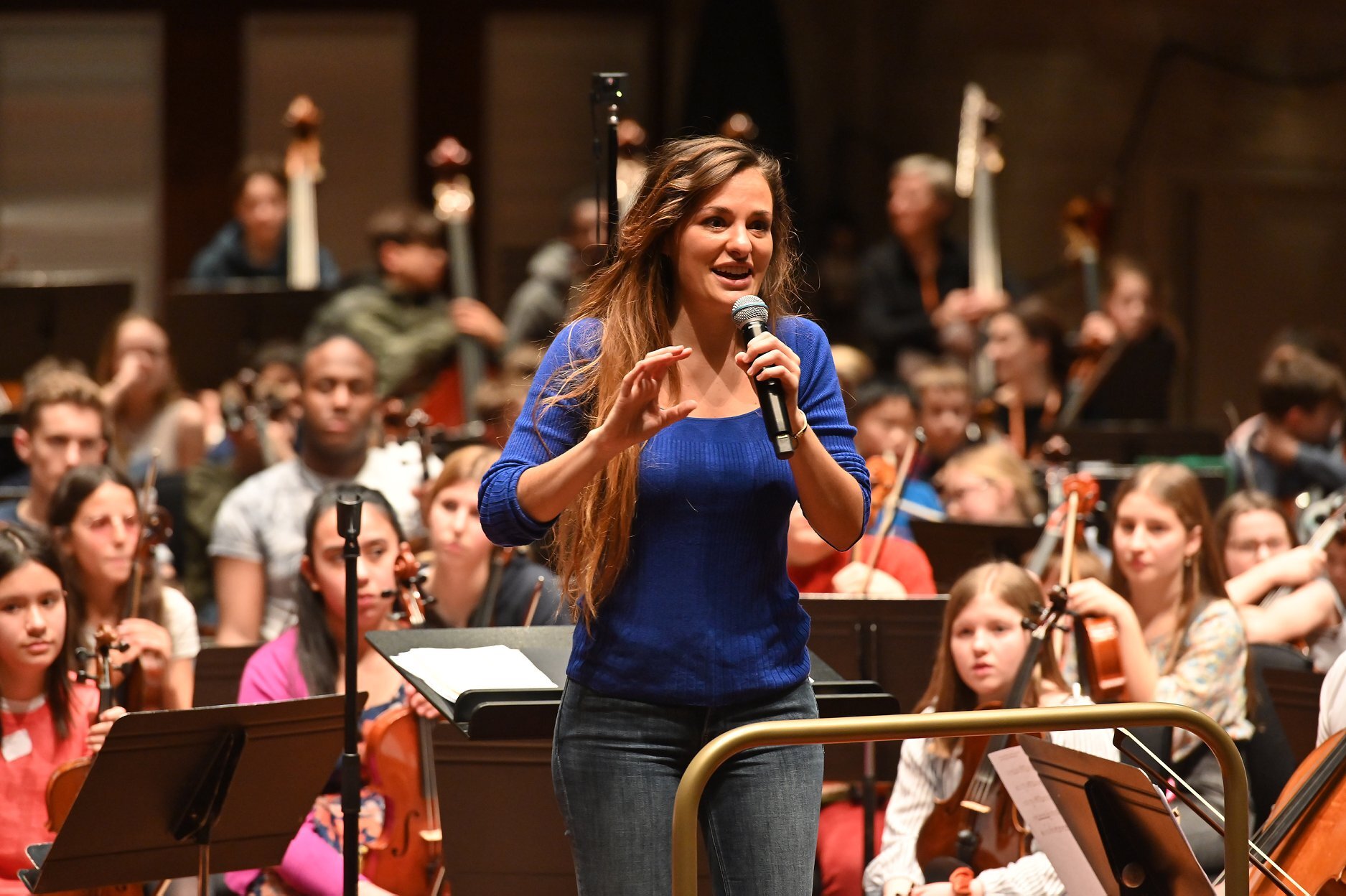Nicola Benedetti on the future of music education in schools
Nicola Benedetti teaching during the Benedetti Sessions in London this past January. (Photo Credit: Mark Allan)
Violinist Nicola Benedetti tells schools to put away musical instruments
By David Sanderson
The Times
October 9, 2020
Every child should be taught the mechanics of music rather than being forced to pick up an instrument, one of the country’s leading violinists has said.
Nicola Benedetti said that she did not think it was “necessarily desirable for every child” to learn an instrument and that there were other methods of teaching the “magic of music”.
She said an overhaul of music education was needed to shift from learning to read sheet music to bringing in a “graspable, confidence-building curriculum and criteria that could be taught by every teacher”.
Benedetti, 33, a Grammy award-winning musician and former BBC Young Musician of the Year, said that often instrument teaching was “really bad” and off-putting for large numbers of children.
She said the “larger question of the language of music, the concept of music, the way of listening to things that are longer form, understanding how different layers of sound can be put on top of each other and organized, the way that you can follow your ear and work out intervals” could be taught “successfully en masse”.
“Every child should be doing those things to a high level and we would be a much better nation for it,” she told the Last, Past and Blast podcast. “For every child there are other things regarding the magic of music that we could teach successfully and actually deliver to everyone,” she added. She said music did not have to be just a “physical relationship” with an instrument, adding that many young people were excited about the “inner workings, the mechanics of how music is made”.
Many musicians have emerged without formal training and some, including the jazz composer Dave Brubeck, said that their inability to read sheet music went “mostly unnoticed”.
“It is hard but we do not make it easier with the ways in which we teach young children how to play musical instruments,” she added.
A 2013 study indicated that there was a window of learning between the ages of six and eight when musical training interacts with motor development.
Virginia Penhune, a psychology professor at Concordia University in Quebec who carried out the study, said: “Learning to play an instrument requires co-ordination between hands and with visual or auditory stimuli. The younger a musician started, the greater the connectivity.”
Benedetti added her voice to the chorus of concern about what has been described as the “patchy provision” of music education across the country.
She said that it was “one of the first things to suffer when everything is being tightened”.
A study by the British Phonographic Industry in March last year found there had been a 21 per cent decrease in music provision in state schools in England since 2014.
“A fight has been fought for a long time and will continue to be fought,” Benedetti said. She added that while she would not “discourage” people from learning to read sheet music, she would take away the “focus” on it and instead bring in an “exciting enticing graspable confidence-building curriculum”.
“There are loads of things that a teacher who has never studied music before could pass on to their students that would be informative, challenging, exciting, fun, would inspire creativity and help with teamwork,” she added.
To read the full article, click here.

